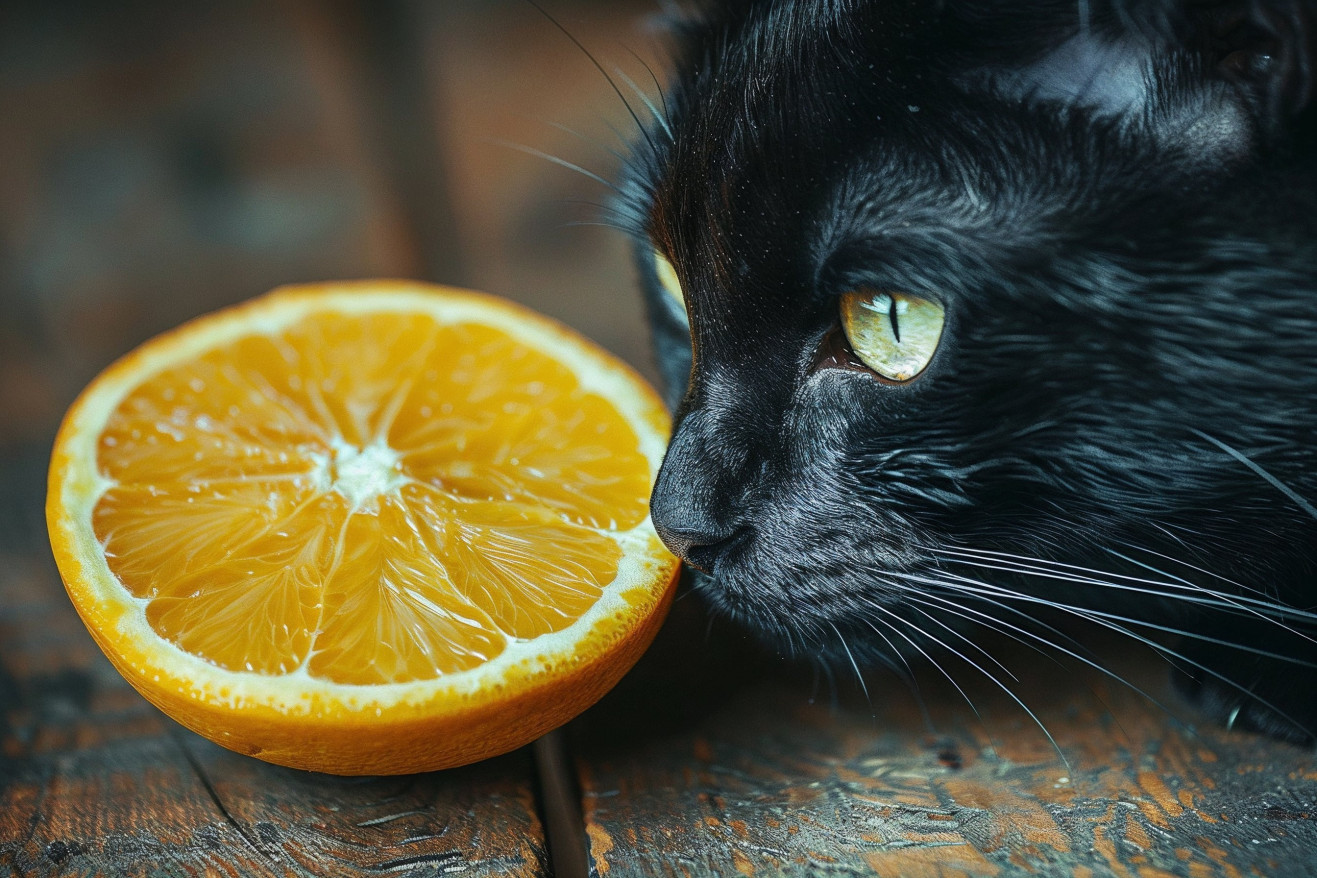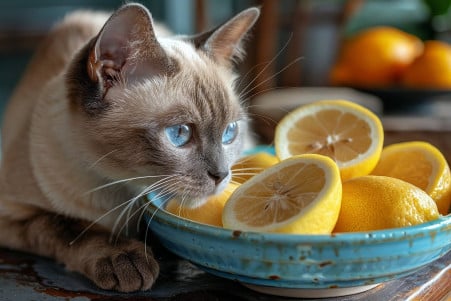Can Cats Eat Oranges? A Look at the Potential Benefits and Risks
25 March 2024 • Updated 25 March 2024

Can cats partake in the sweet, citrusy goodness of oranges, or is this fruit best left off the menu for our feline friends? It turns out that cats can eat oranges in small amounts as an occasional treat. While oranges are not poisonous to cats, they are high in sugar and calories, so they should be fed in moderation as part of a nutritionally balanced diet. The acids and oils in oranges can also lead to digestive upset if they are consumed in large quantities.
Although the evidence on whether cats can eat oranges is mixed, we will take a closer look at the latest research from the field of veterinary medicine and reference expert sources to learn how to safely feed oranges to your cat. In doing so, we will gain a better understanding of the potential benefits and risks of feeding oranges to your cat and learn the best way to let your furry friend enjoy this delicious treat.
Can cats eat oranges?
Know the Risks: Toxic Chemicals in Oranges
Oranges contain a number of chemicals that are toxic to cats, including citric acid, essential oils such as limonene and linalool, and psoralens. As noted by Greg.app, these chemicals are poisonous and cats' bodies can't process them properly. When ingested, they can cause a range of problems including upset stomach, skin sensitivity, depression of the central nervous system, and in extreme cases, seizures.
The highest concentration of these toxic chemicals is found in the rind, seeds, and plant parts of oranges, which makes these parts the most toxic for cats to eat. That said, the flesh can also pose a risk if ingested in large amounts because of its high sugar and acid content. Cats are naturally repelled by the scent of citrus fruits, but their inability to taste sweetness means that there's no nutritional upside to eating oranges that would outweigh the potential risks of the toxic chemicals that are present in all parts of the fruit.
Although a small amount of orange flesh may not cause immediate harm, it's best to avoid giving cats oranges entirely because of the risks associated with the toxic chemicals they contain. This naturally leads to a discussion of the risks associated with other citrus fruits besides oranges.
Citrus Fruit Toxicity: More Than Just Oranges
In addition to oranges, other citrus fruits like lemons, limes, and grapefruits contain the same toxic compounds and should be avoided. According to Bella & Duke Raw Food, the essential oils, citric acid, and psoralens in these fruits can lead to the same symptoms, including gastrointestinal upset, skin irritation, and neurological problems in cats.
Although the flesh of some citrus fruits may be less toxic than others, the Pawlicy Advisor explains that the peel, seeds, and plant parts of all citrus fruits are toxic to cats. Cats are naturally averse to the smell of citrus fruits, which can help deter them from eating them, but cat owners should still be careful. According to The Vets Blog, it’s best to avoid giving cats any citrus fruits since their obligate carnivore diet doesn’t require them.
Fruits That Are Safe for Cats
In addition to citrus fruits, there are a few other fruits that are safe to feed your cat as an occasional treat. According to The Spruce Pets, cats can't taste sweetness and therefore may not like the taste or texture of fruit. However, The Wildest says that cats can eat small amounts of bananas, blueberries, strawberries, watermelon (without seeds or rind), and cantaloupe.
Cooper Pet Care also lists apples (without stems or seeds), cranberries, and pumpkin as other fruits that are OK to feed your cat in small amounts as part of a balanced diet. As Purina points out, it's important to note that fruit should never be used to replace a cat's regular diet, which should be high in protein, and should only be given as an occasional treat. In addition, cat owners should always check with their vet before adding anything new to their cat's diet, especially if their cat has any health issues.
Accidental Ingestion: What to Do
If a cat does happen to eat any part of an orange or another citrus fruit, it's important to keep a close eye on them for any potential symptoms. According to BeChewy, common symptoms of citrus poisoning in cats include vomiting, diarrhea, drooling, weakness, skin irritation, and neurological symptoms like tremors or seizures.
The symptoms can vary in their severity based on the amount of the fruit that was eaten and which part of the fruit was consumed, since the ASPCA explains that the flesh of the fruit is less toxic than the peel and other parts of the plant. If a cat does show any symptoms after eating citrus, WagWalking warns that pet parents should call their vet right away for advice and possibly treatment.
According to WagWalking, taking a cat to the vet for treatment, which may include vomiting, activated charcoal, and IV fluids, can help reduce the impact of citrus poisoning. This is important since citrus fruits can be very dangerous to cats if they are not treated.
Conclusion: Moderation and Caution with Oranges
While a small amount of orange pulp may not be immediately toxic to cats, it is best to avoid giving cats oranges and other citrus fruits altogether. The potential dangers of the toxic compounds found in these fruits, including citric acid, essential oils, and psoralens, far outweigh the potential benefits for cats, which are obligate carnivores.
Instead, cat owners should focus on feeding their pets a well-rounded, protein-based diet and, if they want to give their cats fruit, consider safer options like bananas, blueberries, and watermelon as an occasional treat. If a cat is exposed to oranges or citrus, it is important to watch for symptoms like vomiting, diarrhea, and skin irritation and to get the cat to a vet as soon as possible if any problems develop.
By being careful and using oranges and other citrus fruits in moderation, cat owners can make sure their pets stay happy and healthy.


